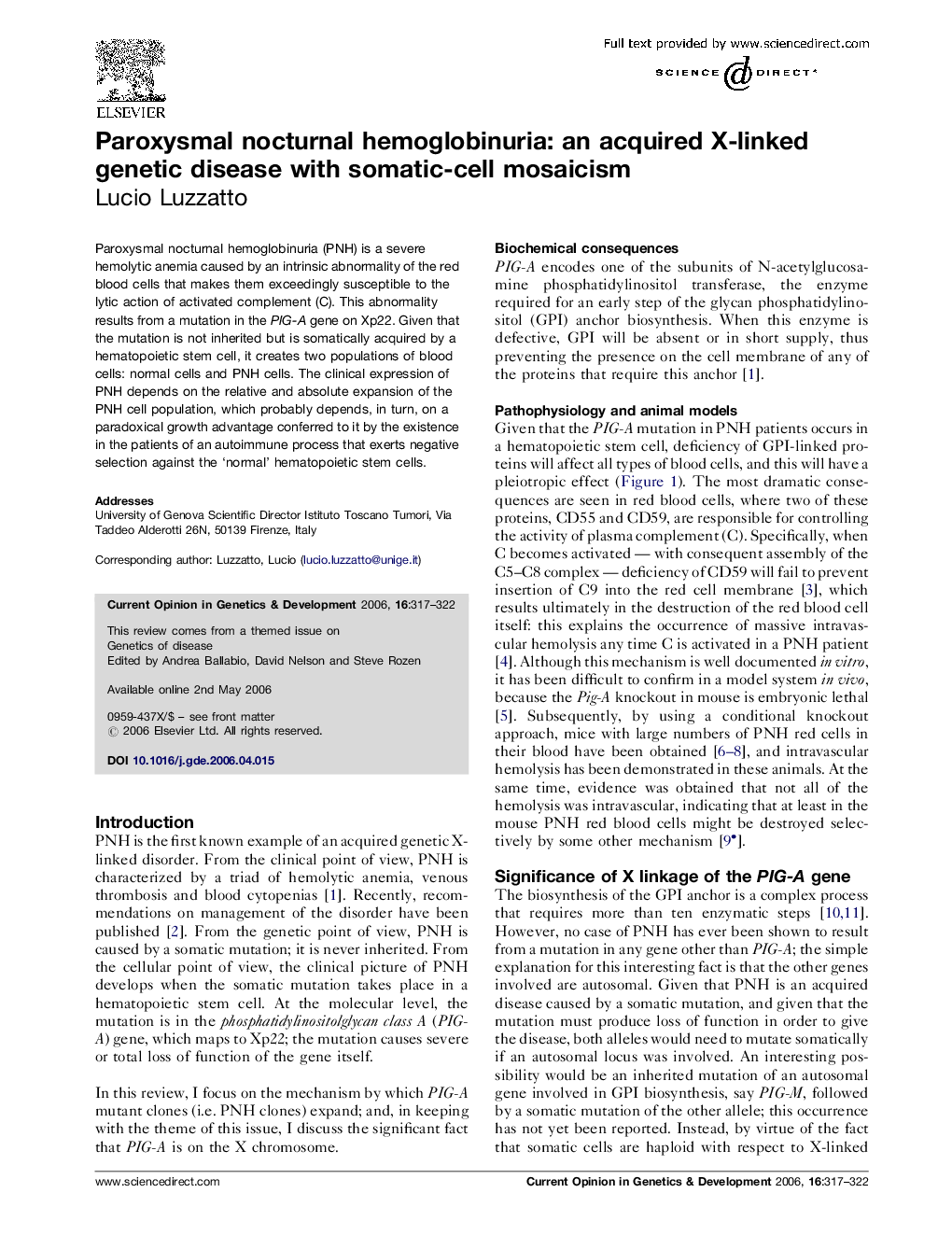| Article ID | Journal | Published Year | Pages | File Type |
|---|---|---|---|---|
| 2785399 | Current Opinion in Genetics & Development | 2006 | 6 Pages |
Paroxysmal nocturnal hemoglobinuria (PNH) is a severe hemolytic anemia caused by an intrinsic abnormality of the red blood cells that makes them exceedingly susceptible to the lytic action of activated complement (C). This abnormality results from a mutation in the PIG-A gene on Xp22. Given that the mutation is not inherited but is somatically acquired by a hematopoietic stem cell, it creates two populations of blood cells: normal cells and PNH cells. The clinical expression of PNH depends on the relative and absolute expansion of the PNH cell population, which probably depends, in turn, on a paradoxical growth advantage conferred to it by the existence in the patients of an autoimmune process that exerts negative selection against the ‘normal’ hematopoietic stem cells.
